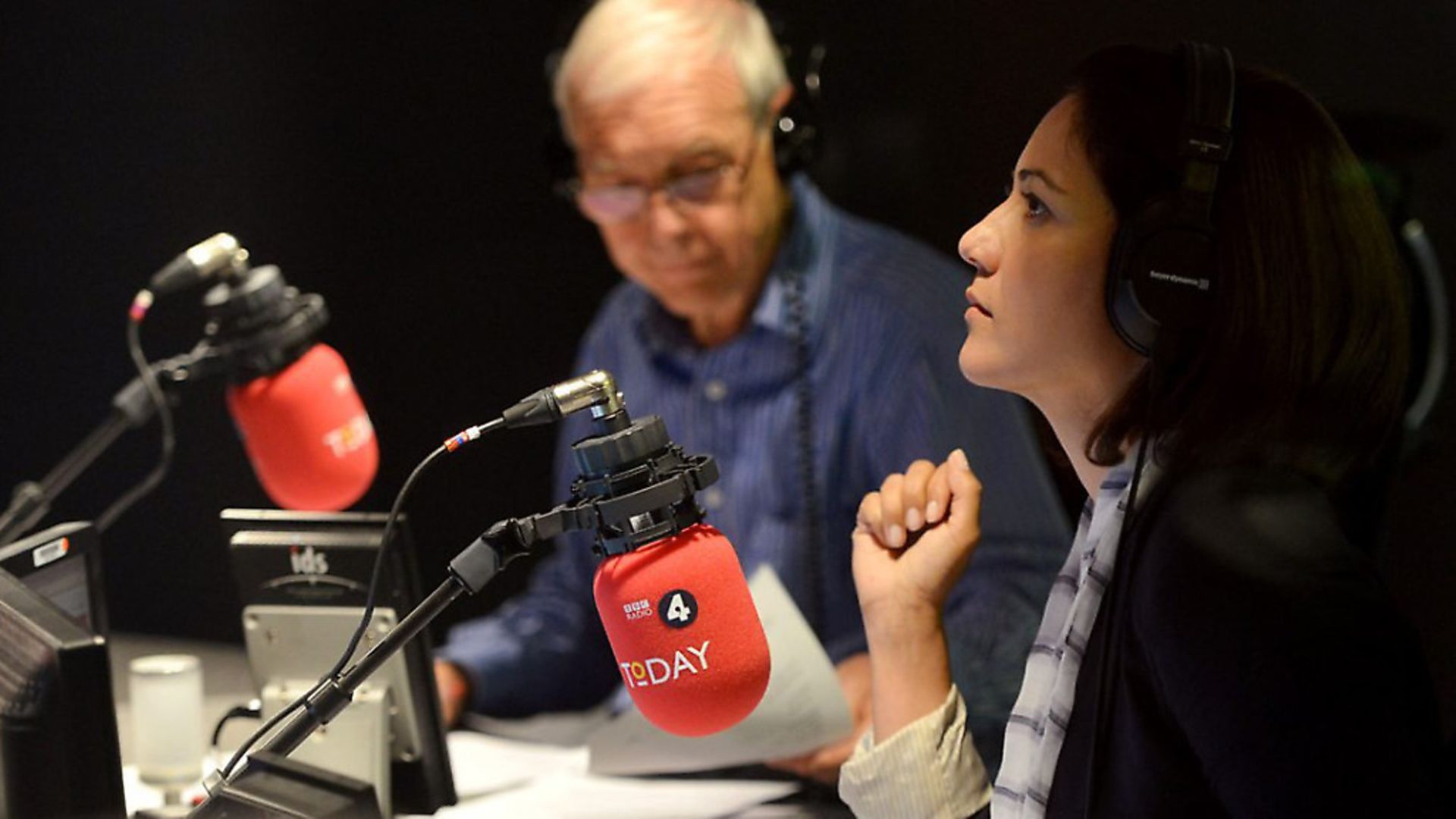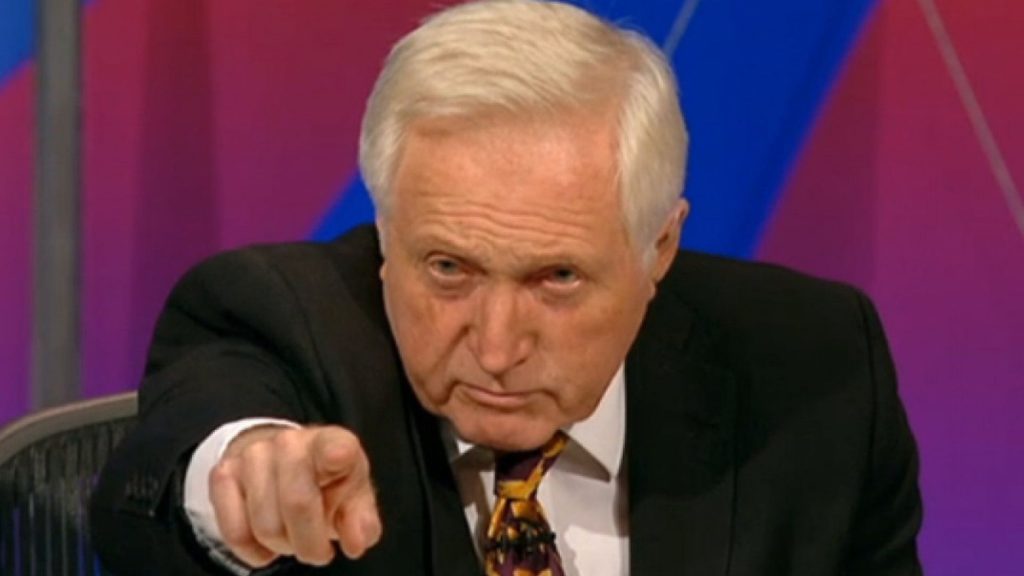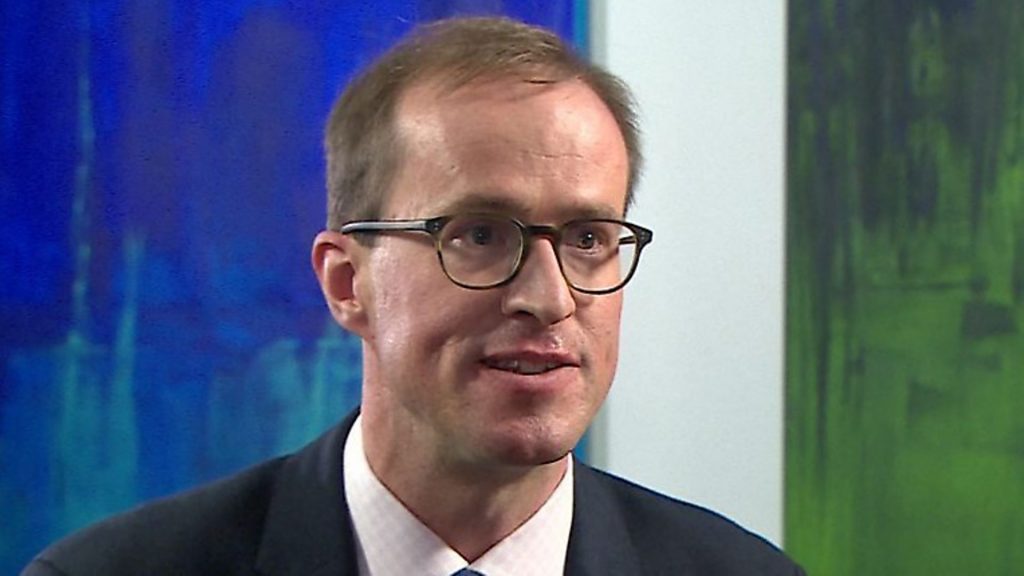
Former BBC staffer PATRICK HOWSE says his former employer’s misguided attempts at evenhandedness mean it is failing its greatest test since the Second World War.

A distinguished BBC journalist once told me that covering the Bosnian War was like going into a bar and being told by the first person you meet that ‘two and two is five’. Another man, further up the bar, disagrees. ‘Two and two is seven!’ he shouts. ‘The BBC’s editorial line at that point was that the truth must lie somewhere in between,’ the journalist concluded. When it doesn’t know what else to do, when it’s faced by a big challenge, or a crisis of poor leadership (which often coincide), the BBC retreats to ‘balance’.
I left the Corporation in 2014 after a 25-year career, and was bureau chief in Baghdad between 2004 and 2009. The BBC was the only UK news organisation to maintain a presence in Iraq for the entire period of Britain’s involvement. I’m not citing myself as an outstanding exemplar of BBC journalism, but here’s a quick story to give you an idea of the lengths we would go to.
In 2006 when the Askari Shrine in Samara was blown up, and the de facto civil war began in earnest, we were lied to by the authorities about the numbers of people killed in the wave of violence that followed. So, we risked our lives to travel through militia checkpoints across a locked-down city and went to the morgue, and there I counted the bodies (many, many more than we were being told).
We did not do a perfect job in Iraq, but in great danger and at a very high personal cost for many of us, we told the story as fairly and accurately as it was possible to do. Current BBC journalists like the superb Quentin Sommerville do this all the time, all around the world. Reporters like Emma Jane Kirby give you angles and insights behind the headlines that you just don’t get elsewhere.

But the BBC does have a problem… balance.
My suspicions about this were first raised on the morning when Sarah Wollaston, the Conservative MP, changed sides during the referendum campaign. She was outraged by the ‘£350million to the NHS’ lie, and went on the Today programme and other outlets to explain why she was switching her support from Leave to Remain. Then, during the 8am Radio 4 news summary, the audience heard a clip of her saying the £350million claim was a lie – followed immediately afterwards by one of John Redwood saying it wasn’t. This was classic BBC balance in action.
When you have people of goodwill and good intent discussing an issue from different sides, balance can be a useful tool: you tell both sides, and let the audience decide. It breaks down, though, when applied to subjects like Brexit, climate change, and Holocaust denial. The result is not balanced reporting, but a confused ‘he said this, but she said that’ narrative that gives false equivalence to the truth and a pack of lies.
The truth is not the mid-point between good and evil, or right and wrong.
Let’s take climate change as an example. The vast majority of scientists working in the field – 97% – think it is happening, and that it is man-made. But Lord Lawson – a former politician, with no scientific background – thinks otherwise. So Radio 4’s Today programme get him on ‘for balance’, leaving the audience none the wiser, and no better informed, but with the impression that there are two sides to a debate when there aren’t.
This reflexive retreat has gone so far that the BBC is even ‘getting the balance in first’, to coin a phrase. When Vote Leave were found to have broken electoral law earlier this summer, the BBC covered the story by allowing them to defend themselves before the Electoral Commission had released its findings (not ‘allegations’, as the BBC repeatedly called them).
Video of an interview with Vote Leave’s Matthew Elliott topped the website page. He was able to claim that they had ‘offered to go into the Electoral Commission’ but hadn’t been able to give his organisation’s side of the story, and that the commission hadn’t followed due process. We now know this was untrue. The interviewer, the BBC’s political editor Laura Kuenssberg, even implied in a question that this wasn’t very serious stuff: ‘To many of our viewers, this will sound like you were bending the rules, pushing at the limits.. you may be innocent in theory, but it sounds like you were guilty in practice.’ Again, we now know this was untrue – they broke the law, and were guilty in theory and in practice – but because the interview was recorded and broadcast before the findings were announced, there was no way of challenging that at the time.
The BBC also has specific problems on specific programmes. Question Time, of course, has become a joke, giving far too much prominence to extreme views and normalising them.
And the aforementioned Today is a problem too, as many current BBC journalists admit to me privately. John Humphrys is widely perceived by Remainers to be biased, and he doesn’t help himself in this regard when he uses words like ‘unashamed’ to introduce Andrew Adonis, implying he should be ashamed to be a Remainer. But the problem with Today goes wider than Humphrys.
Since the Wollaston and Lawson examples I’ve mentioned, in the name of balance we’ve had the far-right extremist Raheem Kassam invited on to talk about Tommy Robinson, when other, serious programmes like Channel 4 News opted to interview experts who could actually explain the legal ins-and-outs of the case. I’m told that there’s an insistence on trying to find people, organisations, and businesses who have a positive attitude to Brexit, while stories highlighting the difficulties are ignored entirely, or spiked late in the editorial process.
Current BBC staffers have told me of a ‘climate of fear’, instructions ‘handed down from on high’ and editorial meetings where ‘alternative takes are frowned on’. Poor leadership is cited, both from the programme editor Sarah Sands and her team (who are thought of as ‘out of their depth’), and the BBC’s wider group of senior managers (who apparently now ‘scuttle round Broadcasting House avoiding eye contact’).
One contemporary of mine told me: ‘I have never known a time like this and I have worked at the BBC for more than 20 years. There’s no moral compass. No one’s allowed to question or disagree with suspect editorial decisions. It’s scary.’
Brexit and Trump are different aspects of the same phenomenon: an attack by unscrupulous liars on liberal democracy and its values. The search for this illusion of balance is playing into their hands. This is the biggest test for the BBC since the Second World War and, so far, it’s not going well
• Patrick Howse is a poet and former BBC journalist









